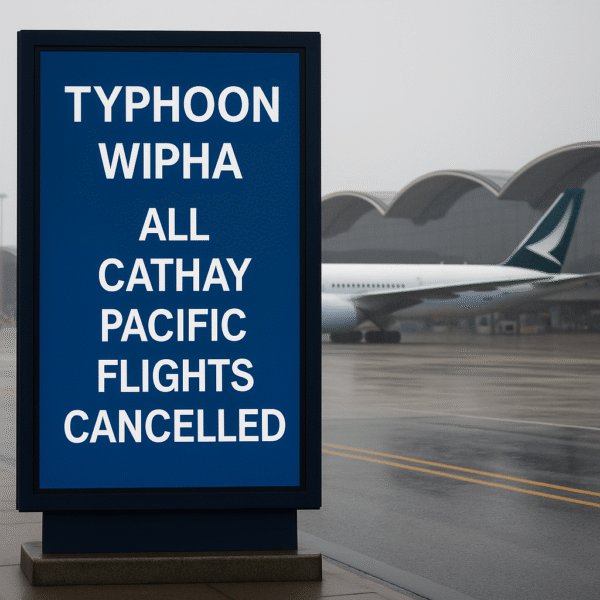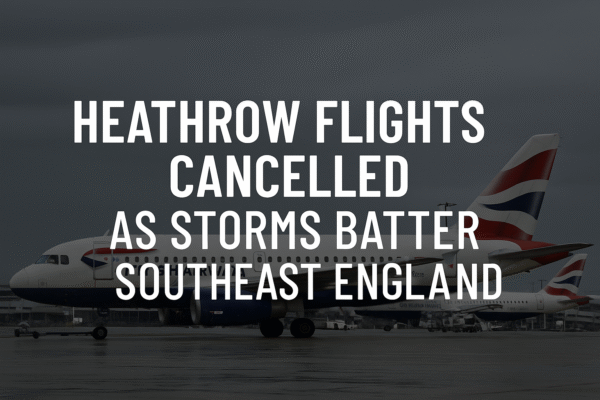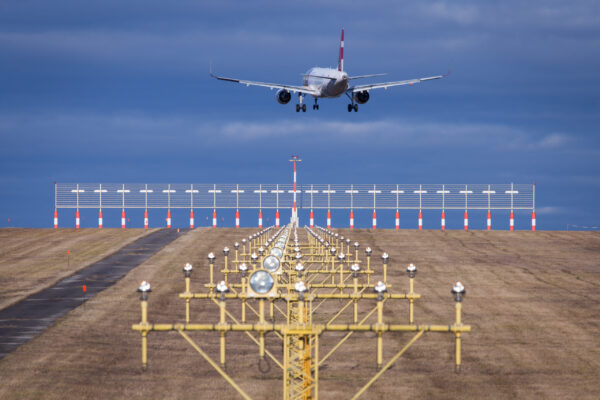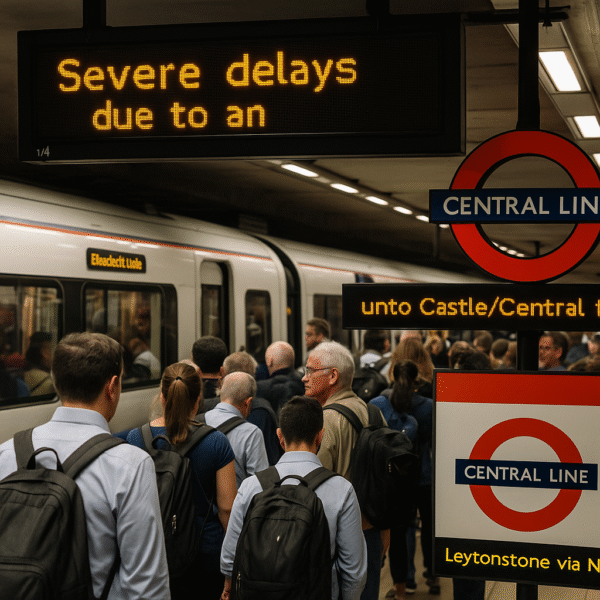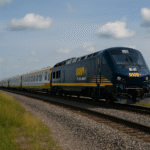London, UK – July 18, 2025 – Commuters across the capital were met with significant travel disruption this Friday morning as multiple Transport for London (TfL) services—including the Elizabeth line, Central line, and Croydon Tramlink—were severely affected by electrical faults, signal failures, and engineering works.
The issues left thousands stranded during peak travel hours, prompting TfL to urge passengers to check their journeys in advance, seek alternate travel routes, and stay up to date with live alerts.
Elizabeth Line: Electrical Faults Bring Western Services to a Halt
The most severe delays were reported on the Elizabeth line, where an electrical failure near Twyford disrupted services between Reading and Maidenhead. The problem, attributed to a fault with the overhead power lines, halted several westbound trains and led to the suspension of key services.
Rail replacement buses were deployed to assist affected passengers between Twyford and Maidenhead. Network Rail confirmed that the disruption is part of a wider £140 million maintenance and upgrade programme aimed at enhancing the resilience of the Elizabeth line—part of the UK’s broader railway modernization initiative. The work is expected to span multiple weekends across summer 2025, as engineers aim to improve ageing infrastructure and install advanced monitoring systems to prevent future faults.
According to the Department for Transport, the Elizabeth line has experienced increased wear and tear due to higher-than-expected ridership, with demand exceeding pre-pandemic levels by 15% in Q2 2025. This has accelerated the urgency for infrastructure reinforcements.
Central Line: Signal Failure at Holborn Spurs Capital-Wide Delays
Meanwhile, the Central line was heavily disrupted due to a signal failure at Holborn, causing widespread delays on both westbound and eastbound services. Trains from White City to Ealing Broadway and West Ruislip, as well as from Leytonstone to Epping and Hainault via Newbury Park, faced substantial cancellations and overcrowding.
Although engineers resolved the fault by late morning, delays continued well into the early afternoon. Transport for London reported that the Central line—originally opened in 1900—is undergoing a five-year signalling upgrade to accommodate increased capacity and improve reliability.
As a mitigation strategy, TfL deployed additional trains on nearby Bakerloo and Jubilee lines to ease congestion, while also urging commuters to consider working from home or staggering travel hours where possible.
Croydon Trams: Track Replacement Works Impact South London
South London’s tram services were also significantly affected as engineering works shut down the stretch between Reeves Corner and East Croydon. The service closure, which began earlier this week and is scheduled to last until July 22, is part of Tramlink’s long-term modernisation plan, involving track replacements, bridge maintenance, and station upgrades.
Further service suspensions are expected on the Arena to Elmers End route between July 23–27. TfL said these updates are essential to improving long-term safety and reliability, particularly as tram usage is expected to rise by 30% over the next five years, according to London Assembly projections.
To support affected travellers, alternative bus routes were recommended via the TfL website and mobile app. However, commuters have voiced concerns about overcrowding and delays on surrounding bus lines.
TfL Urges Passengers to “Check Before You Travel”
To mitigate widespread disruptions, TfL has been updating passengers through the TfL Go app, social media channels, and website. Passengers are being encouraged to plan alternative routes and leave extra time for their journeys.
“We understand the impact these delays have had on people’s lives and are working around the clock to restore service as quickly and safely as possible,” said a TfL spokesperson. “Our investment in upgrades is vital to keeping London moving as the population and demand for public transport continue to grow.”
In addition to its £1.2 billion capital improvement plan for 2025, Transport for London is collaborating with Network Rail to implement real-time monitoring systems and AI-powered diagnostics across underground and overground lines.
A Glimpse Into the Future of London Transport
While these disruptions have caused short-term frustration, TfL insists they are part of a broader vision to future-proof London’s mass transit system. The Mayor’s Transport Strategy 2025–2040 outlines a goal of achieving an 80% public transport and active travel modal share by 2040. Key components include automated train operation, smart traffic management, and carbon-neutral operations.
According to recent data from the UK Office of Rail and Road (ORR), passenger satisfaction has steadily improved in areas where digital upgrades and proactive maintenance have been implemented, offering a promising path forward.
Advice for Travellers
With ongoing works and unexpected faults likely to persist, here’s what London commuters should do:
- Use the TfL Go app or official TfL website for real-time service updates.
- Sign up for email alerts on your regular routes.
- Consider earlier or staggered journeys during peak times.
- Monitor planned closures, particularly on weekends and late evenings.
- Follow TfL’s social media channels for instant alerts.
Conclusion: Building Resilience Amid Disruption
The events of July 18 serve as a stark reminder of the fragility of London’s ageing transport infrastructure. But they also underscore the city’s commitment to long-term resilience and innovation. As the capital continues to expand and evolve, investing in modern systems and real-time response capabilities will be key to maintaining commuter confidence and supporting sustainable urban mobility.
For the latest travel advice, commuters are encouraged to visit https://tfl.gov.uk and monitor live updates.
For more travel news like this, keep reading Global Travel Wire






